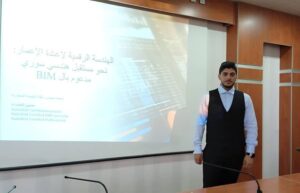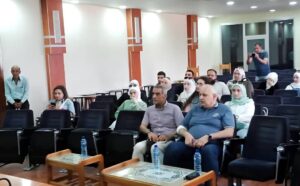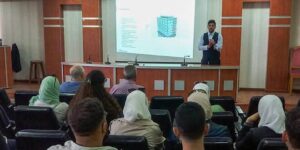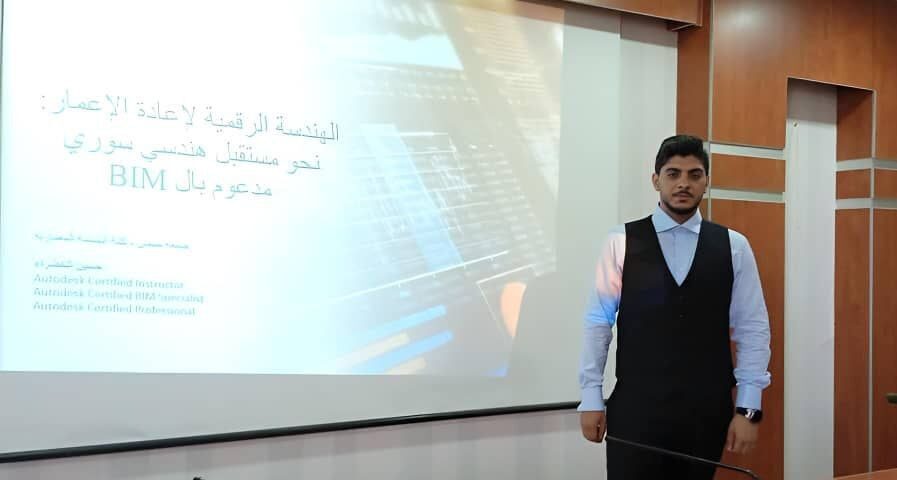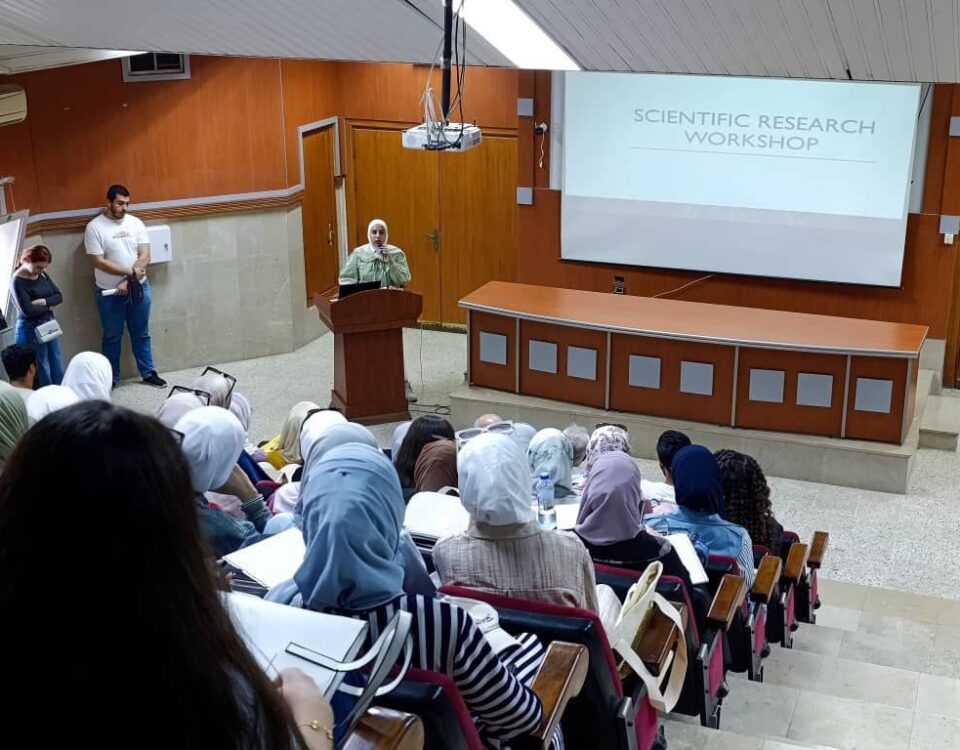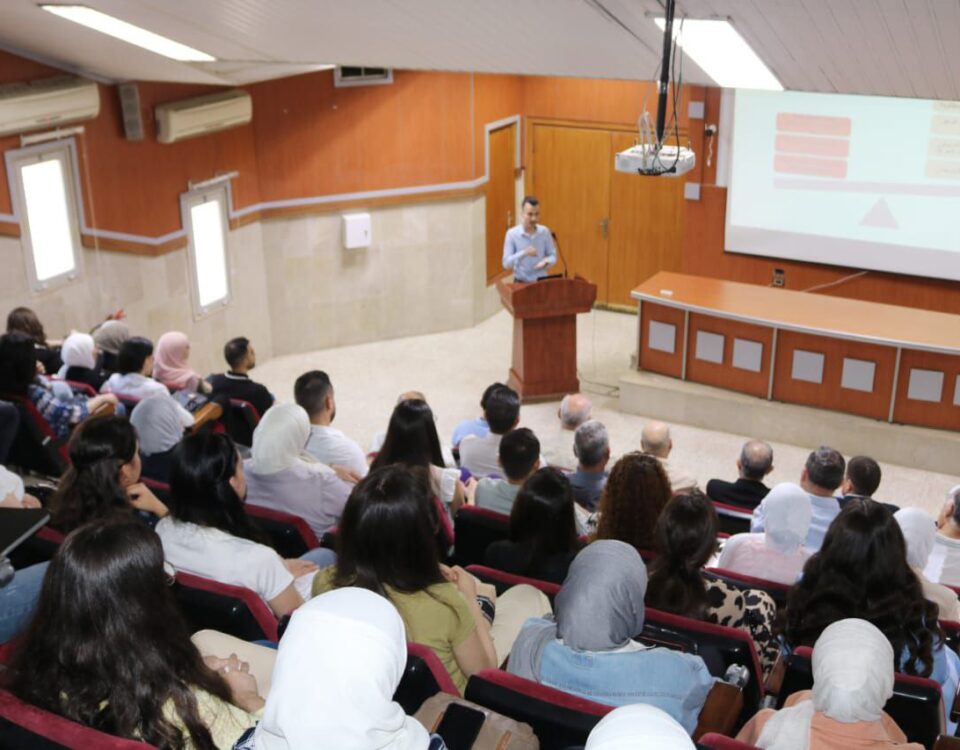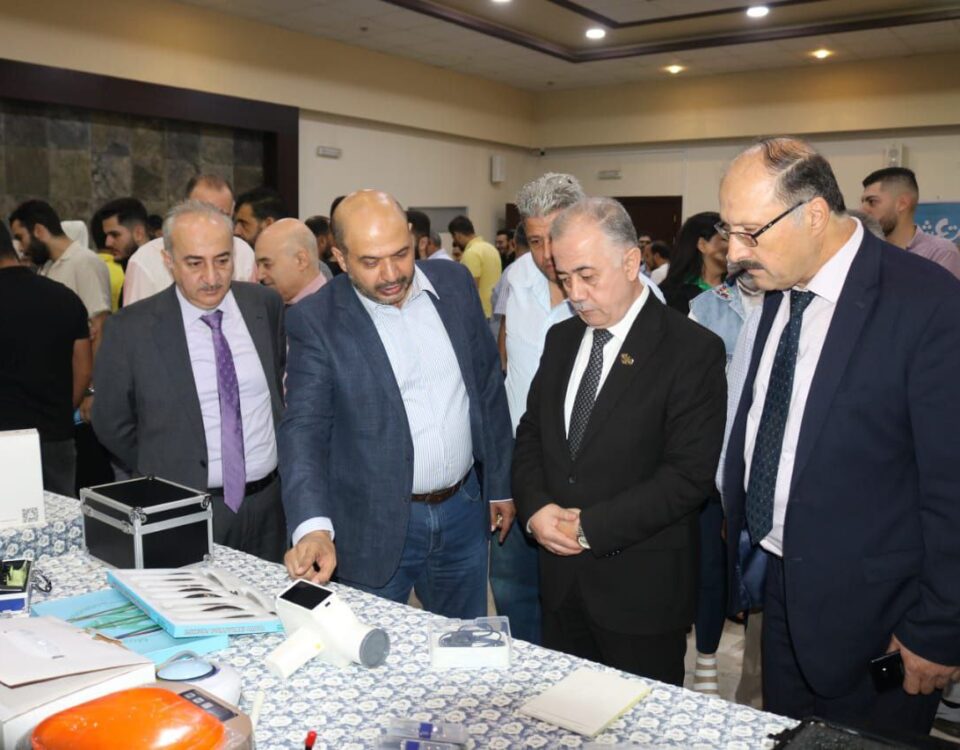- The Faculty of Architecture has organized a scientific lecture entitled “Digital Engineering for Reconstruction… Towards a Future of Syrian Engineering Supported by BIM” presented by Eng. Hussein Alkhadra, a specialist in Building Information Modeling (BIM).This lecture is part of Homs University’s efforts to enhance engineering education and connect it to the latest global innovations.
The faculty dean, Prof. Abdulrahman Hamdoun, has emphasized that raising students’ awareness of modern technologies such as BIM is one of the faculty objectives to modernize engineering teaching methods, indicating that the lecture aimed to shed light on the main areas in this field such as the strategic vision of BIM techniques, its role in accelerating reconstruction and community building, BIM methodology in terms of tools and standards, the future of engineering jobs in the era of digitalization, and the role of BIM in the local and international professional reconstruction strategies. Moreover, he has indicated that the faculty seeks to carry out such activities to enable students to become familiar with modern digital tools and employ them in their future projects, so as to enhance their contribution to developing a smart urban environment.
In turn, Eng. Hussein Alkhadra reviewed the advanced global vision of the BIM technologies, highlighting their strategic position in the modern construction sector and their importance in accelerating reconstruction processes.
He has added that the BIM technology represents a crucial step towards smart cities and digital reconstruction, confirming its importance as a key tool in the fourth industrial revolution, as it enables digital implementation and thus reduces dependence on paper documents and increases the efficiency of project management.
He also discussed the advanced dimensions of the BIM technology, such as: accurate quantity calculation, automatic extraction of architectural models, support of sustainable strategies, operation and maintenance management, study of health and safety standards and the use of artificial intelligence to reduce errors and improve performance.
It is worth noting that the lecture is part of a series of scientific activities organized by the faculty to connect theoretical teaching with application, to promote the performance of students and graduates to professionally address the engineering challenges.
